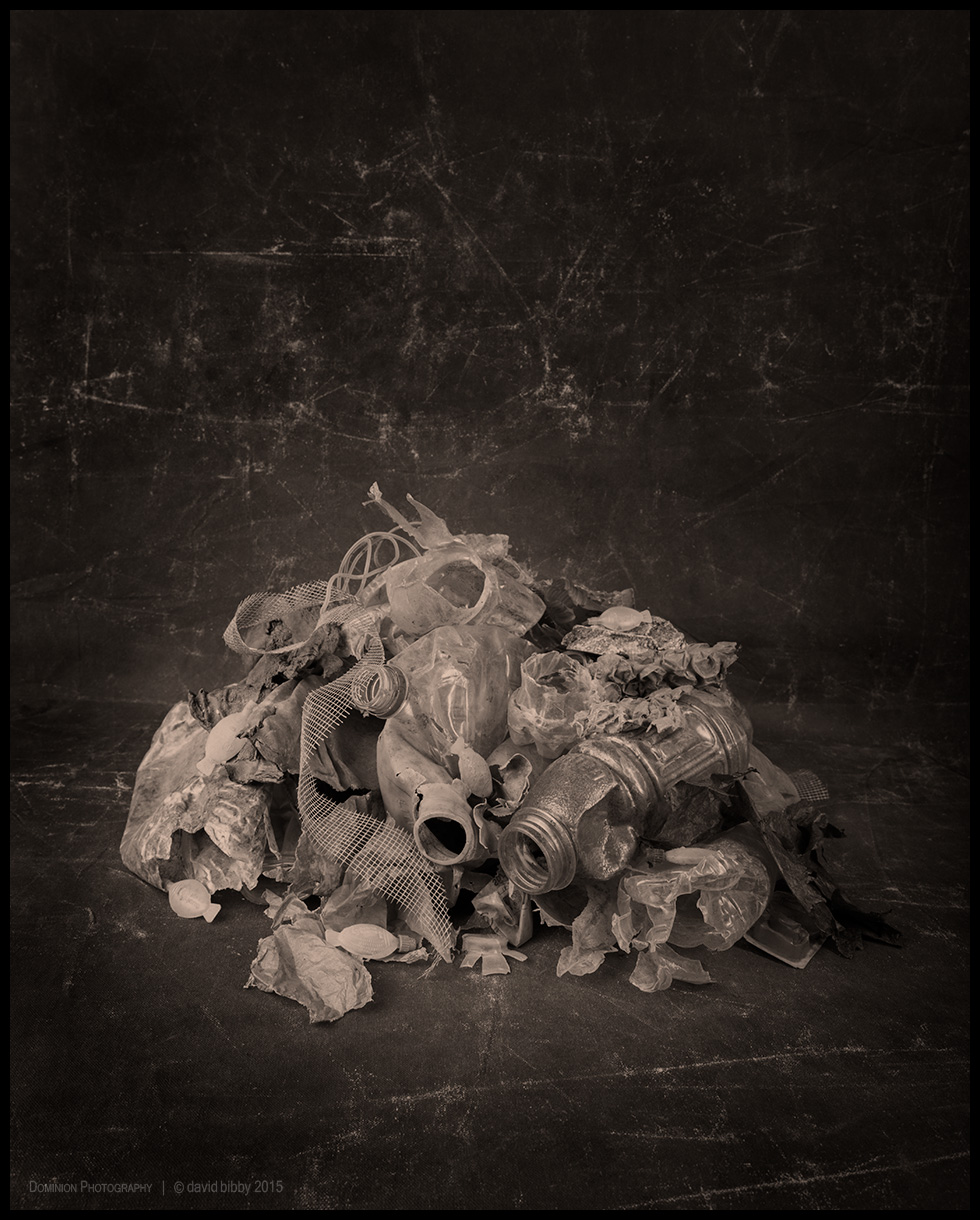Legacy
Global plastic production is currently around 300 million tonnes per year and expanding rapidly.
Our consumer culture leads us to update products containing or packaged in plastics continuously, often regardless of actual need. This is compounded by the growing world population and number of people who can afford to own these products. In the race for new technology, driven by the need for a commercial edge and a profit, it is all too easy for the environmental consequences of these commercial imperatives to become ‘someone else’s problem’.
Current production of plastics is almost entirely from petroleum, a non-renewable resource. How will we adapt away from our dependence on plastic as oil resources dwindle?
Where do plastics go when we’re finished with them? Recycling helps mitigate the need for oil as a source material, but only some types of plastic are currently recyclable and recycling rates are very low in most countries. Large volumes end up in landfill or are disposed of inappropriately, creating hazards for wildlife on land, or get washed into the ocean where marine life is affected.
Post-consumer plastic waste is an environmental issue that is often ignored. Most plastics do not biodegrade at a rate that will prevent them from building up and causing long-term harm.
In the marine environment degradation does occur, with some plastics broken down physically and by ultraviolet light. When this occurs, the plastics form smaller fragments called microplastics that are harmful to marine creatures when they are accidentally eaten. Complete breakdown is likely to take hundreds of years.
Polystyrenes break down more rapidly in the ocean, but with the side effect of releasing toxic chemicals into the water with unknown consequences.
This work, titled ‘Legacy’, asks the viewer to consider these issues and the ramifications on the world we will leave behind.
~
The rubbish I collected and photographed for this project was removed from Dandenong Creek in my suburb of Heathmont. On my rubbish retrieval walks I would take a small bag for collecting usable objects and a large bag for collecting everything else I found, for later disposal in a skip.
This collection of rubbish by one person felt completely futile and I knew that the next time it rained, far more inappropriately dumped rubbish would be washed into the creek. It raised the question: if we can’t even get this right, here in an affluent country, what hope is there in developing countries that don’t have garbage collection, landfills and recycling plants?












